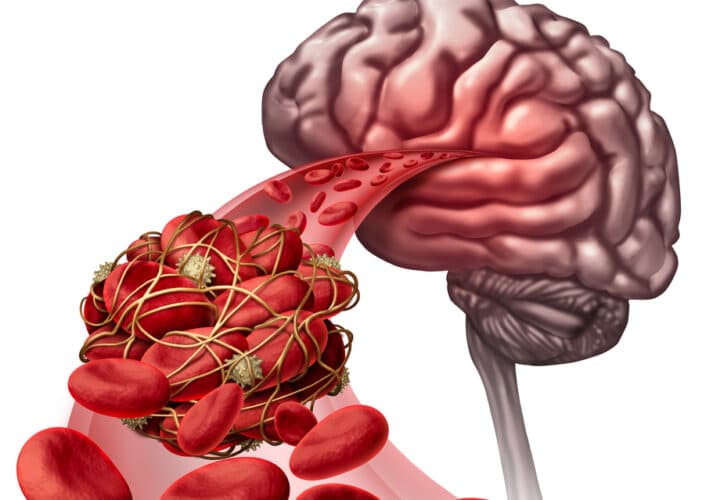Scientists have identified several genes that might be influencing both cardiovascular disease and Alzheimer's at the same time.
We know that vascular health and brain health are linked—evidence shows that stroke doubles the chance of dementia and those who follow heart-healthy medical advice have up to a 70 percent lower chance of developing dementia. But does the connection boil down to DNA? A new study shows that the same genetics involved in cardiovascular disease have also been implicated in Alzheimer’s—a discovery that could lead to new Alzheimer’s drug development targeting factors that trigger cardiovascular disease.
A team led by scientists at Washington University School of Medicine in St. Louis studied the DNA of 1.5 million people. While a certain variant of a gene called ApoE has been the genetic component most associated with Alzheimer’s, these scientists found several other genes that might be influencing both cardiovascular disease and Alzheimer’s. While science points to carrying two copies of the ApoE4 gene as being almost a certainty that a person will develop Alzheimer’s if they live long enough—people with two copies have a 91 percent chance of developing Alzheimer’s in their lifetime—the genetic factor for Alzheimer’s risk might be more complicated than a single gene.
“Our study emphasizes that there’s much to learn about how genes driving Alzheimer’s disease risk also increase the risk for other health problems, particularly cardiovascular disease, and vice versa,” said Celeste M. Karch, Ph.D., an assistant professor of psychiatry at Washington University School of Medicine. “So we really need to think about these risks more holistically.”
Karch and a group of other scientists were able to identify 90 different regions of the genome that had an association with increased risk for Alzheimer’s and cardiovascular disease. Six of those were identified as having a strong association with Alzheimer’s and cholesterol levels—some of which had never been linked to dementia before. When they looked for the same genetic risk factors in healthy people, they found that people with the newly identified risk factors were more likely to have a family history of Alzheimer’s, even if they had what seemed to be healthy cognition.
Researchers looked at the genes that might predispose a person to conditions that cause poor vascular health (think: a high body mass index, Type 2 diabetes and high triglyceride and cholesterol levels) to see if they were also genetically linked to Alzheimer’s.
“The genes that influenced lipid metabolism were the ones that also were related to Alzheimer’s disease risk,” Karch said. “Genes that contribute to other cardiovascular risk factors, like body mass index and type 2 diabetes, did not seem to contribute to genetic risk for Alzheimer’s.”
While high body mass index and Type 2 diabetes are considered risk factors related to dementia, the results from this study highlight that Alzheimer’s may be a disease that could be controlled by targeting how the body regulates fat in the blood.
“These findings represent an opportunity to consider repurposing drugs that target pathways involved in lipid metabolism,” said Karch. “Armed with these findings, we can begin to think about whether some of those drugs might be useful in preventing or delaying Alzheimer’s disease.”




Hi, Thanks for your top-notch article. Actually, The most common symptom of coronary artery disease is angina or chest pain. Angina can be described as a discomfort, heaviness, pressure, aching, burning, fullness, squeezing, or painful feeling in your chest. It can be mistaken for indigestion or heartburn.
This is big deal! Amazing article